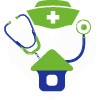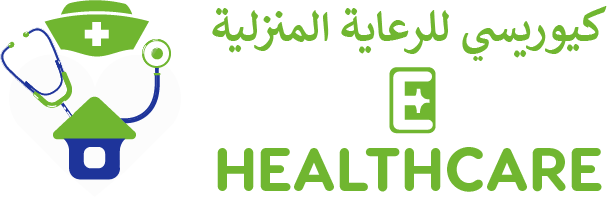Archives
Lifecare home healthcare Medication management is the comprehensive process of administering medications following a specified procedure. It encompasses the responsibilities of a qualified nurse or healthcare provider, including assessing the psychotropic medications prescribed to the patient, providing prescriptions, and continuously monitoring the use of medications.
Paving the Path to Patient Safety: Why Medication Management is Vital for Healthcare Providers
The Vital Role of Medication Management in Home Nursing
Medication management is a vital aspect of home nursing. By prioritizing medication management, healthcare professionals ensure patients receive optimal care and experience positive health outcomes. Let’s explore why it is so important:Avoiding Unwanted Side Effects:
Through medication management, healthcare professionals take the necessary time to understand the patient’s condition and symptoms. This helps prevent the development of side effects, such as dementia, which can arise due to drug interactions. While doctors prescribe the right medications, patients may still experience side effects or health complications. Proper medication management helps minimize these risks.Maintaining a Consistent Medication Schedule:
Even when doctors prescribe medications with a specific schedule for patients to recover from their health concerns, it is common for patients to deviate from it. Some elderly patients may unintentionally take doses in lower or higher amounts, which can hinder the intended benefits. Effective medication management ensures patients adhere to the prescribed schedule, optimizing the effectiveness of the treatment.Preventing Undesirable Medication Combinations:
When patients receive treatment from multiple doctors specializing in different areas, there is a risk of undesirable medication combinations. Lack of communication among healthcare providers can lead to adverse effects on the patient’s health. Engaging in medication management helps avoid such concerns by ensuring coordination and collaboration among the healthcare team.Insight into Dosage Adjustments:
If a patient’s health does not show positive progress or gradually declines, it may be necessary to adjust or change the prescribed medications. Some patients may require modifications to their medication schedule to suit their specific needs. With the help of healthcare professionals, medication management ensures appropriate adjustments in doses and schedules, ultimately leading to the desired treatment outcomes for patients.Crucial Role of Medication Management in Enhancing Elderly Care at Home
As our loved ones age, providing them with proper care becomes increasingly important, especially when it comes to managing their medications. Let’s delve into the significance of medication management for elderly individuals receiving home nursing care.Timely Medication Assistance:
Elderly individuals often face challenges in taking medications as prescribed, such as remembering the correct dosage or timing. This is where home nursing experts play a crucial role, ensuring that the elderly receive their medications on time and in the correct doses right at the comfort of their own home.Reliable Support When Families Can’t Be Present:
Sometimes, due to work or personal commitments, families may be unable to provide constant care for their elderly loved ones at home. In such situations, home care service providers and nursing staff step in to offer unparalleled care and support, including effective medication management. They establish a comprehensive framework that prioritizes the well-being of the elderly.Secure Medication Administration:
Proper medication management in home nursing adheres to secure working practices, ensuring the safe and accurate administration of medications. This applies not only to oral medications but also extends to modern practices like IV therapy, which can be efficiently carried out by trained nursing staff within a home setting.Ensuring Safe Medication Management for Child Care in Home Nursing
When it comes to medication, children require special attention and care due to their unique vulnerabilities. Let’s explore the importance of medication management in home nursing for child care.Minimizing Risks for Children’s Health:
Children are more susceptible to medication risks compared to adults. Families often face challenges when managing their children’s health, resulting in frequent hospital admissions. Healthcare staff should recognize that their own actions, as well as those of families and patients, can contribute to potential harm from incorrect or untimely medication administration.Collaborating with Families for Risk Reduction:
To address medication management challenges in home nursing for children, nurses must work closely with families. By partnering together, the goal is to minimize the risk of harm and ensure that children receive the maximum benefits from their medications. Providing families with the best advice on treating children, reporting and analyzing medication errors, and communicating safety incidents are crucial components of delivering optimal home nursing solutions for children.Effective Medication Management in Home Nursing To Safeguard Baby Health
Caring for babies and infants involves ensuring their health and growth through proper medication management. Let’s explore key considerations when managing medications for baby care in home nursing:Recognizing and Addressing Side Effects:
It is crucial to closely monitor babies for any visible side effects while administering medications. If side effects become evident, healthcare providers should promptly discontinue the medication and consult with appropriate medical professionals. Prioritizing the well-being of the baby is paramount in medication management.Accurate Dosage Administration:
When administering medications to babies, it is essential to use an accurate dosage spoon or medicine dropper. This ensures precise measurement and minimizes the risk of under- or overdosing. Following proper dosage instructions is crucial to optimize the effectiveness and safety of the medication.Maintaining Sterilization of Utensils:
To promote a hygienic environment, it is vital to keep all utensils and spoons used for administering medications sterilized. Regularly cleaning and sanitizing these items help prevent contamination and reduce the risk of infections or other complications.Keeping Medication Records:
Maintaining a record of the medications administered to the baby, as well as those yet to be taken, is an essential aspect of medication management. This record helps caregivers and healthcare providers track the baby’s medication history, ensuring accurate dosing and timely administration.Proper Medication Storage:
To maintain the effectiveness and safety of medications, it is recommended to store them in their original containers. This ensures proper labeling and prevents mix-ups or confusion. Additionally, following storage instructions, such as keeping medications away from direct sunlight or extreme temperatures, helps maintain their potency.Guidelines for Effective Medication Management in Home Nursing
Proper medication management is crucial to ensure patient safety and optimal health outcomes. Here are some best practices for medication management in home nursing:Adherence to Doctor’s Instructions:
Patients should strictly follow the doctor’s prescription and not deviate from the prescribed dosage or schedule. Avoid self-adjusting doses or reducing medication costs, as this can lead to potential risks and compromised effectiveness.Refill Medications in Advance:
Avoid running out of medications by ensuring timely refills. It is recommended to refill prescriptions before they run out to prevent any disruptions in the medication regimen. Even if there are remaining pills, consider getting fresh refills, taking note of expiration dates.Monitor for New Symptoms:
Patients may develop new symptoms due to drug interactions or individual reactions to medications. Caregivers should be vigilant and report any new symptoms promptly to the doctor. This helps identify potential medication interactions and allows for necessary prescription adjustments.Use Medication Reminders:
Establish a consistent medication routine, especially for elderly patients, by utilizing reminders. Set alarms on mobile phones or place reminders on visible locations like doors or refrigerators to help patients adhere to their medication schedule. adjustments.Utilize Pill Dispensers:
Pill dispensers with compartments for each day of the week can be highly beneficial, particularly for patients who need to take multiple medications at different times of the day. They help ensure accurate medication administration and provide caregivers with an overview of daily pill consumption.Maintain a Current Medication List:
Keep an updated list of the patient’s current medications for emergency situations and doctor consultations. Include the generic and brand names, dosages, schedules, and reasons for each medication. This list helps prevent confusion among healthcare providers and aids in identifying potential side effects or drug interactions.Conduct Yearly Medication Management Checkup:
Schedule an annual medication review with the doctor to assess the patient’s medication regimen. As individuals age, physiological changes can impact the way medications affect them. Regular checkups help identify any necessary adjustments or potential risks associated with drug interactions. By following these best practices for medication management in home nursing, caregivers and healthcare providers can ensure patient safety, optimize medication adherence, and improve overall health outcomes.Medication Management: Collaborating with Healthcare Professionals
To ensure optimal medication management in home nursing, it is essential to collaborate with healthcare professionals. Here are key tips for healthcare staff to follow:Establish Appropriate Medication Schedules:
Collaborate with healthcare professionals to create suitable medication schedules for patients receiving home care. These schedules ensure timely and accurate administration of medications, promoting effective management.Assess Home Care Medication Needs:
Thoroughly assess the medication requirements of patients in home care. This includes evaluating the types of medications needed, dosages, and any special considerations based on the patient’s health condition.Maintain a Comprehensive Medication List:
Create and maintain a comprehensive list of all prescriptions and medications that the patient needs to take. This list helps ensure accurate administration and avoids any potential drug interactions or duplications.Understand Side Effects, Dosages, and Frequencies:
Healthcare staff should have a thorough understanding of the medications being administered, including their potential side effects, recommended dosages, and frequencies. This knowledge allows for safe and appropriate medication management.Monitor Response and Effectiveness:
Continuously monitor and evaluate the patient’s response to medications. Assess their effectiveness in addressing the intended health concerns and promptly communicate any observations or concerns to the healthcare professionals.Foster Communication with Doctors:
Maintain open and effective communication with doctors involved in the patient’s care. Regularly update them on the patient’s progress, medication adherence, and any changes in their condition. This ensures that the patient receives the best possible outcomes.Medication Management With Lifecare home healthcare
At Lifecare home healthcare, we understand the critical nature of medication management. That’s why we have registered nurses and healthcare experts who specialize in ensuring the proper administration of medications according to doctors’ prescriptions. Our services encompass various aspects, ranging from organizing medications to providing timely alerts and reminders to help patients stay on track with their medication regimens.
With a focus on delivering high-quality healthcare in the comfort of your own home, Lifecare home healthcare is committed to providing compassionate and exceptional healthcare services in the UAE. Our team of licensed healthcare providers is dedicated to offering a comprehensive range of home healthcare solutions, including injection services, pain management nursing, wound care nursing, and much more. Rest assured, our services adhere to stringent medical policies and standards to ensure the highest level of care for our patients.
Choose Lifecare home healthcare for reliable and professional medication management, as we strive to make a positive impact on your health and well-being through our exceptional home healthcare services.
Other Services
Thyroid test at home
Error: Contact form not found.
You might also like
The Diagnostic Value of CT Scans
Lab test at Home Food Intolerance Doctor at Home Physio
The Vital Role of Vaccinations: Essential for All Ages
Lab test at Home Food Intolerance Doctor at Home Physio
Breastfeeding Awareness Week: Simple Tips for New Moms
Lab test at Home Food Intolerance Doctor at Home Physio

